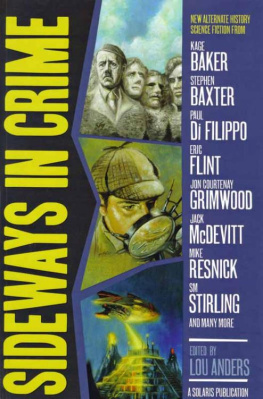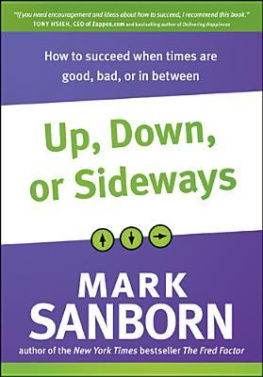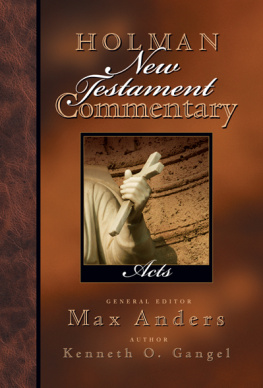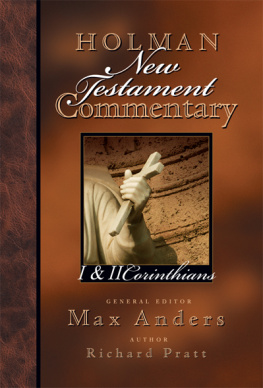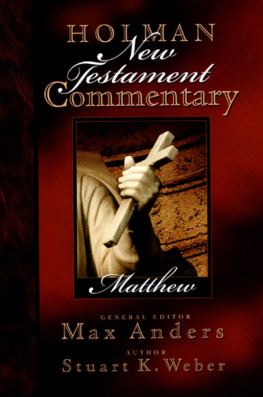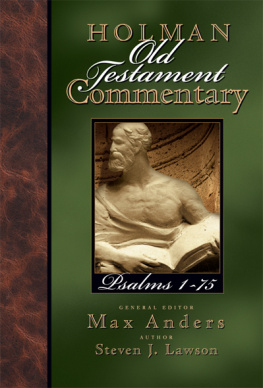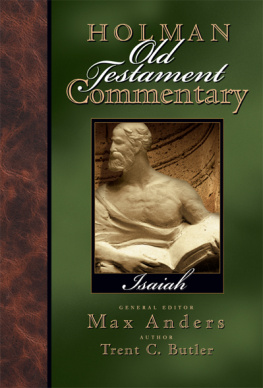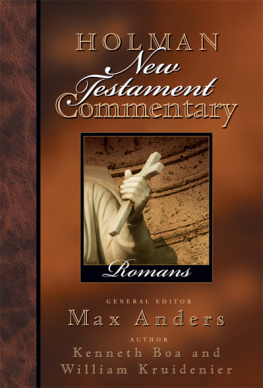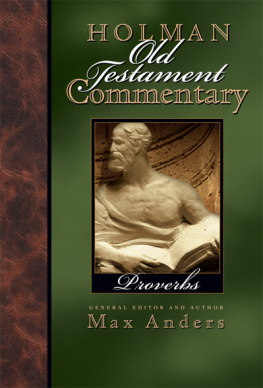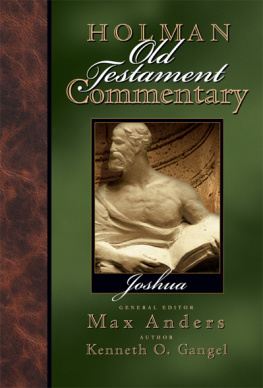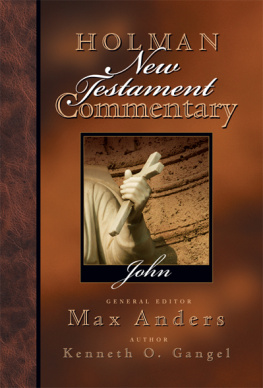Lou Anders (Editor) - Sideways In Crime
Here you can read online Lou Anders (Editor) - Sideways In Crime full text of the book (entire story) in english for free. Download pdf and epub, get meaning, cover and reviews about this ebook. year: 2008, publisher: Solaris, genre: Detective and thriller. Description of the work, (preface) as well as reviews are available. Best literature library LitArk.com created for fans of good reading and offers a wide selection of genres:
Romance novel
Science fiction
Adventure
Detective
Science
History
Home and family
Prose
Art
Politics
Computer
Non-fiction
Religion
Business
Children
Humor
Choose a favorite category and find really read worthwhile books. Enjoy immersion in the world of imagination, feel the emotions of the characters or learn something new for yourself, make an fascinating discovery.
- Book:Sideways In Crime
- Author:
- Publisher:Solaris
- Genre:
- Year:2008
- Rating:5 / 5
- Favourites:Add to favourites
- Your mark:
- 100
- 1
- 2
- 3
- 4
- 5
Sideways In Crime: summary, description and annotation
We offer to read an annotation, description, summary or preface (depends on what the author of the book "Sideways In Crime" wrote himself). If you haven't found the necessary information about the book — write in the comments, we will try to find it.
Sideways In Crime — read online for free the complete book (whole text) full work
Below is the text of the book, divided by pages. System saving the place of the last page read, allows you to conveniently read the book "Sideways In Crime" online for free, without having to search again every time where you left off. Put a bookmark, and you can go to the page where you finished reading at any time.
Font size:
Interval:
Bookmark:
First published 2008 by Solaris
ISBN-13: 978-1-84416-566-7
Sideways in Crime: An Alternate Mystery Anthology 2008 Lou Anders
Introduction 2008 by Lou Anders
Running the Snake 2008 by Kage Baker
Via Vortex 2008 by John Meaney
Fate and the Fire-lance 2008 by Stephen Baxter
The Blood of Peter Francisco 2008 by Paul Park
The Adventure of the Southsea Trunk 2008 by Cryptic Inc.
G-Men 2008 by Kristine Kathryn Rusch
Sacrifice 2008 by Mary Rosenblum
Murder in Geektopia 2008 by Paul Di Filippo
Chicago 2008 by JonCG Ltd.
The Sultans Emissary 2008 by Theodore Judson
Worlds of Possibilities 2008 by Pat Cadigan
A Murder in Eddsford 2008 by S.M. Stirling
Conspiracies: A Very Condensed 937-Page Novel 2008 by Mike Resnick & 1632, Inc.
The Peoples Machine 2008 by Tobias S. Buckell
Death on the Crosstime Express 2008 by MonkeyBrain Inc.
With love.
For Marsha Adams Anders, Who has forgotten more about the mystery genre than I will ever learn. This ones for you, Mom.
Acknowledgments
First and foremost, thanks are due to George Mann and Christian Dunn, and the rest of the crew at Solaris Books, who were good enough to believe in this project. Id also like to thank Robert J. Sawyer and Norman Spinrad, for the use of their words in my introduction and for being such stellar guys. A universe or two of thanks to Michael Moorcock, whose inspiration and influence cannot be discounted. Then theres Bob Eggleton and Darius Hinks for a great cover. I am thrilled to have my first Eggleton, and I hope it isnt my last. Im grateful also to S.M. Stirling, for sending me two great stories before anyone else sent one. When you read the one I chose, Im sure youll want to hunt down the other as well. Finally, infinite thanks are due to my wife and child, for their enduring love, patience, and support. Im grateful to be in the universe where they are in my life. Without them, the mystery of existence wouldnt be nearly so compelling or pleasant as it is.
Every good story begins with a question, but not every question is the same. In mystery, that question is traditionally rendered as Who dunnit? A crime has been committed, and the journey of our narrative will be to discover who did what to who, where and why. Certainly, there are a thousand variations on this theme, but unraveling the mystery is at the heart of the storys promise and thrill. In the sister genre of science fiction, the question is a somewhat broader What if? An alteration in our contemporary reality is postulated--What if aliens invade? What if teleportation becomes a viable means of travel? What if a new drug made it impossible to lie?--and the story that follows explores the ramifications for humanity of this new development. The mystery here is in figuring out what makes the world of the story different from the world we know and then examining the light that those differences cast on our everyday notions of society and self.
Who and what. Mystery and science fiction. The two genres actually share a lot in common, beyond loyal readers and their own dedicated section of the bookstore. Hugo- and Nebula-winning science fiction author Robert J. Sawyer, who, incidentally also won the prestigious Arthur Ellis Award from the Crime Writers of Canada, put it best in an interview with John Scalzi (posted on Ficlets.com, June 27, 2007): Science fiction and mystery are not an unnatural pairing--indeed, Ive always thought that science fiction has way more in common with mystery than it does with fantasy. SF and mystery, after all, both prize rational thinking and both require the reader to pick up artfully salted clues about what is really going on--although in SF thats mostly because of the narrative conceit we use.
SF is, as I like to say, the mainstream literature of an alternate reality--its written as if for an audience of people already familiar with the milieu of the story. Of course, you cant really do that--a tour de force like A Clockwork Orange requires a glossary, because the book is gibberish without it, since no one really is familiar with its milieu, and so the dropping of clues and hints is crucial, and, just as in a mystery, they have to be inserted so transparently, without drawing attention to themselves, that the reader doesnt even consciously notice them.
Which is why every science fiction author is a natural born mystery writer, whether they know it or not. Theres another genre that has close parallels with science fiction--and often overlapping readerships--and thats the genre of historical fiction. The skills necessary to invoke another time and place in the minds of the reader are the same, whether one is trying to conjure the details of life in the Twenty-Fourth Century or the Fourteenth. In both situations, the writer must take nothing for granted and must artfully salt all those everyday realities--from the trivial to the monumental--that the writer of contemporary fiction may take for granted. This takes a certain skill to do, and affords a particular joy to read, which may explain both why time travel stories to the past are a popular conceit of science fiction scribes and why there is some degree of crossover in the readership of science fiction and historical novels.
This brings us to the most obvious intersection of science fiction and historical fiction, the alternate history. Certainly the alternate history was not invented by Philip K. Dick, but it was his landmark The Man in the High Castle, which postulated a San Francisco in an America overrun by Nazis, which brought such attention to the form. As Norman Spinrad writes in The Multiverse, in the April/May 2008 issue of his On Books columns for Asimovs Science Fiction Magazine, Indeed, despite all the alternate world stories that have been written afterward and the few that were written before, it is Dicks classic novel of a world in which the Nazis and the Japanese won World War II, and the alternate reality within it in which they didnt, The Man in the High Castle, which really opened the door for the alternate history story as a subset of science fiction, as well, in a way, at least in literary terms, for a certain kind of fantasy as a subset of SF
In literary terms, science fiction, or speculative fiction if you will, is by definition the literature of the could-be-but-isnt, and fantasy by definition is the literature of the demonstrably impossible, and the alternate history story takes place in a region between, a fictional reality in which the laws of mass and energy may be the same as in our own, but which never happened.
Spinrad goes on to point out that Dick did not just craft the definitive counterfactual tale. In his novel, the character of Mr. Tagomi has a vision of our reality, a world in which Germany lost World War II. In showing that both worlds could exist simultaneously, Spinrad credits Dick with introducing the multiverse as science fiction rather than fantasy.
The term multiverse was created by pioneering American psychologist and philosopher William James (1842-1910), who also gave us the term stream of consciousness, though he intended it to describe different psychological states. It was science fiction and fantasy master Michael Moorcock who, independently of James, conceived the term to describe a universe of near-infinite parallel worlds for a story called The Sundered Worlds (published in Science Fiction Adventures, December 1962). Moorcocks use became the prevailing definition of the term, and has entered the popular consciousness to such a degree that it is now on the lip of every quantum physicist. In fact, this notion that our universe may be only one of a transfinite number of such realities, all stacked up against each other, each only a few quantum decisions distance from its neighbor, is rapidly gaining credence as the most likely explanation for the mysteries of quantum mechanics. As mind-boggling a concept as the multiverse is, Occams razor increasingly comes down in its favor. This means that the alternate history may be graduating to the front of the line in cutting edge, relevant science fiction. Far from being simply a fanciful conceit in the service of a good story (as many see notions like teleportation and the faster-than-light drive, seeming implausibilities that simplify some of the problems of space opera), tales of histories that diverged from our own are now explorations of the vanguard of contemporary scientific thinking. So it shouldnt come as any surprise to learn that the counterfactual narrative has recently become the subject of widespread mainstream attention. In 2004, Philip Roth published his acclaimed/winning
Font size:
Interval:
Bookmark:
Similar books «Sideways In Crime»
Look at similar books to Sideways In Crime. We have selected literature similar in name and meaning in the hope of providing readers with more options to find new, interesting, not yet read works.
Discussion, reviews of the book Sideways In Crime and just readers' own opinions. Leave your comments, write what you think about the work, its meaning or the main characters. Specify what exactly you liked and what you didn't like, and why you think so.

